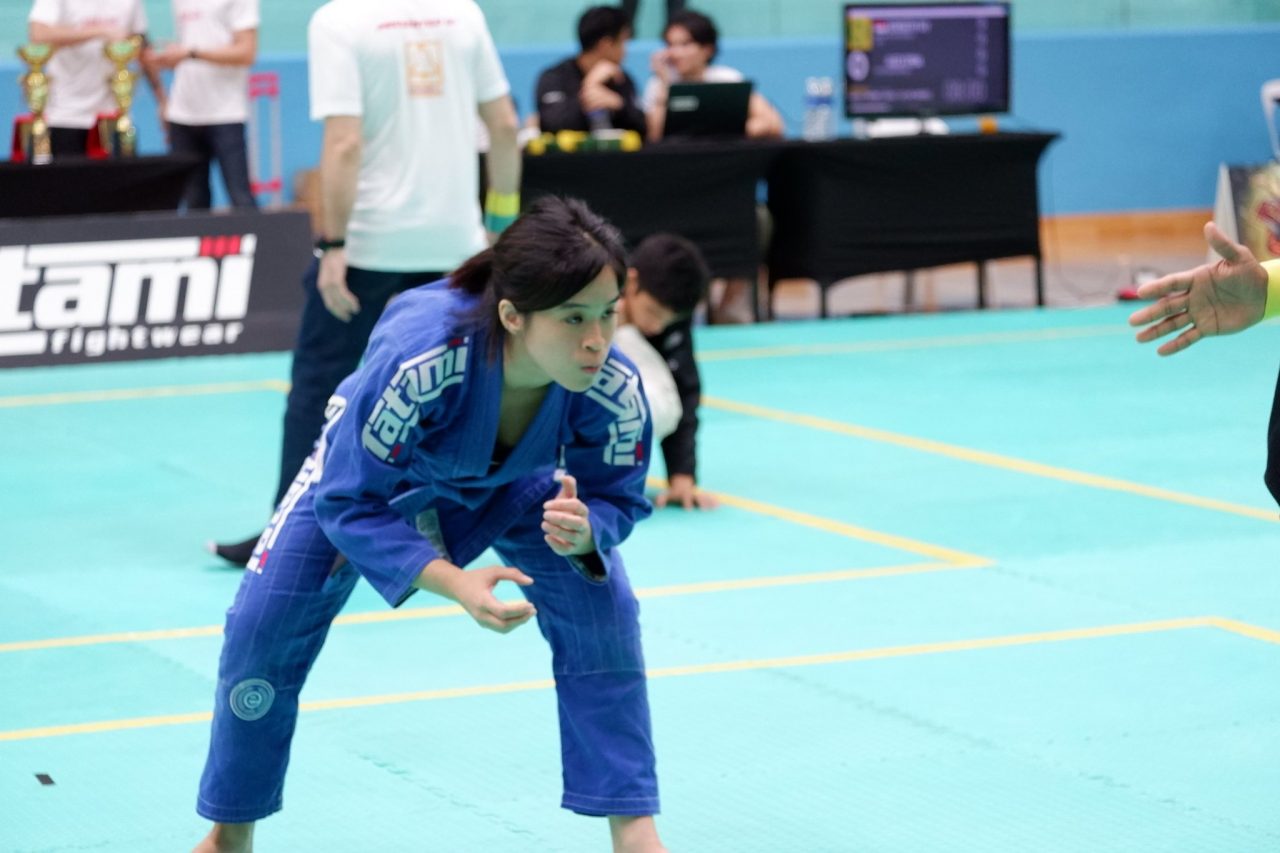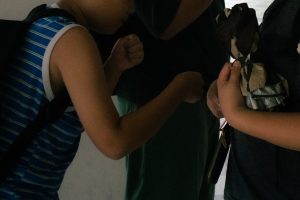Every Monday, I take progress pictures. What I mean by this is that I take a picture of myself in the bathroom mirror after the day’s workout. I compare it to last week’s picture, last month’s, last year’s, pre-pandemic. These days, there is softness to my body. I think back to March—I was leaner because I had spent the last month shedding fat for muscle all to spend my day fighting other women on the mat for a medal, for validation.
These days, for the first time in a long while, my joints do not protest as much every time I try to do anything my body was designed for and the skin on my knuckles are smooth. The last one makes me ache most. It is a reminder of how long it has been since I last trained, how long it has been since I last stepped into the gym. I find myself running my thumb over each knucklebone like worry stones. I wonder what other people who do not train do with their time.
This weekend, Singapore takes its tentative first steps into Phase Two of the gradual reopening of its economy. Gyms open their doors this weekend and life begins to regain some semblance of normality but for martial arts practitioners, grapplers especially, training does not resume. What began as a counting down of the days has turned into weeks, which has now turned into months. I cannot help but envy others.
More than anything, martial arts really puts into perspective the things you are capable of doing under pressure.
There are as many ways to talk about martial arts as there are ways to talk about anything you love—running, gardening, making omelettes. You get what I mean.
In his 2007 memoir, What I Talk About When I Talk About Running, marathon runner slash novelist Haruki Murakami mused, “No matter how mundane some action might appear, keep at it long enough and it becomes a contemplative, even meditative act.” He was talking about running when he wrote this, but what struck me was how a sport, an action, becomes an act of meaning-making when we do it day in, day out, how we could, one day, wake up cocooned in the stitched tapestry of our daily actions, and realise how much of the quotidian shapes who we are to be.
When we talk about martial arts, we speak of it as a metaphor. We talk about overcoming the odds, the triumph of smaller men like Helio Gracie or Jigoro Kano over the proverbial Goliath. It has been likened to a lifebuoy, of providing much-needed respite from life. It is no surprise that one of the most memorable scenes from Rocky is the man running up the 72 stone steps leading up to the entrance of the Philadelphia Museum of Art, looking out to the city, arms stretched into the sky in the gesture that roared, ‘I MADE IT.’
But while the exertion and effort and sweat are iconic, they are far more entertaining and memorable only in that quintessential cinematic form, the montage. Any athlete reading this knows for a fact that the gruelling training routines the characters undergo—the weight cuts, the conditioning, clocking in the hours day after day regardless of how you feel—while admirable, are not fun.
The real reason why these scenes are iconic and why these stories stay with us is because of what these actions represent: the making and the unmaking of the self day by day, each challenge and obstacle overcome is a step towards a better version of who you are today. To talk about martial arts is to talk about a story that highlights the best aspects of our humanity—of grit, determination and perseverance.
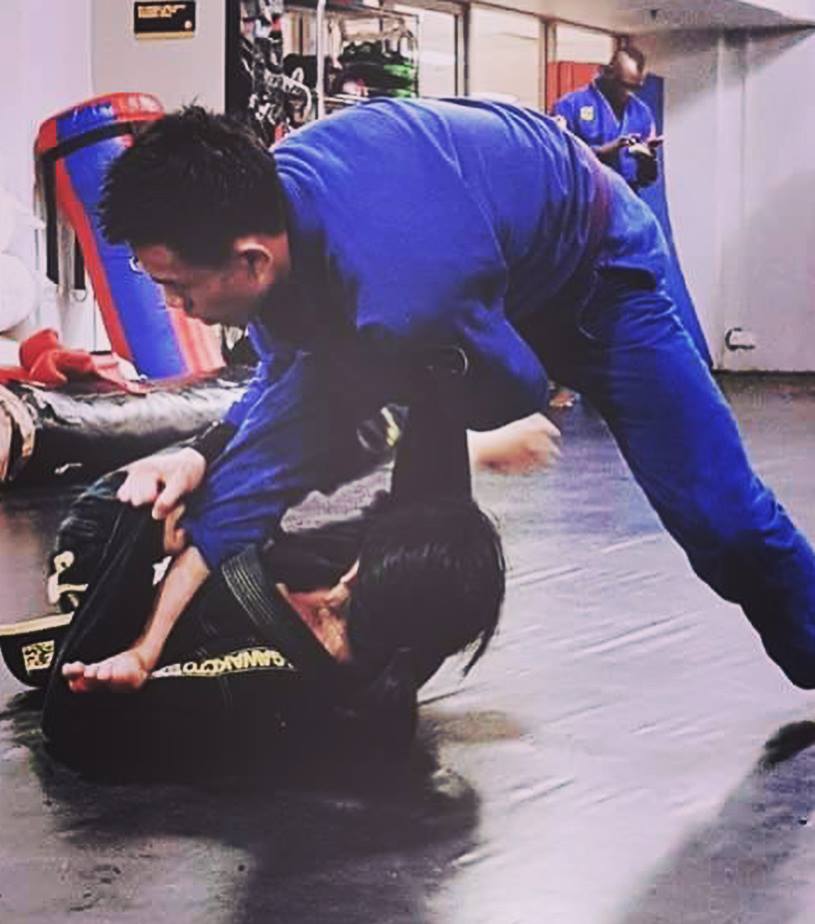
Don’t get me wrong, I am anything but taciturn. Catch me on a topic I am deeply excited about and you’ll wish you never got me started. I never talked about my love for the martial arts in the same way that someone who loves to drink wine might be uncomfortable about calling himself a wine aficionado in the company of other wine-loving enthusiasts who obviously have way more knowledge on the topic. In the same way, I also don’t talk about it to those who do not know anything about martial arts because I consider it strangely rude and solipsistic.
I was intensely private about my love for martial arts simply because of how much it meant to me. It felt like spilling your heartbreak, worries and fears to someone who had casually asked, ‘How was your day’ whilst passing you alone in the office. I do not have enough knowledge of techniques, of positions, of forms, of fighter’s names and tactics, to hold an intelligent conversation with another martial arts enthusiast but at the same time, I’m very aware of how much I love it and what it means to me to not want to bring it up in casual, everyday conversation.
To do so would be to explain the sadness of not being able to train, and to do that would be to explain the significance of what the sport means to us which seems callous in light of a global pandemic. But to acknowledge and contemplate what this loss means at a more immediate, fundamental level is not to deny the enormity of the situation.
Talking about one does not detract from the other. This is not just limited to my experience of missing the mats, many of us have lost things that we feel uncomfortable talking about in the wake of something that seems larger than all of us—from little comforts, personal freedom, to the things that anchor our very existence. But the fact of the matter is that we are individuals caught up in a situation that is far bigger than us, and our individual experiences matter.
We can still feel the ache in our feet while running from the storm. In fact, it is in tumultuous times as these that I long for the comfort of the gym, more so than ever. I never knew how to talk about martial arts because to do so would be to talk about something that is central to my identity. It is difficult to talk about the things you cannot extricate yourself from. It’s like trying to describe something while you’re pressed up against it. It can make you feel foolish explaining the magnitude of the seemingly miniscule. This is what I do when I do not know how to talk about something—I write about it.
Shortly before writing this, I chanced upon a beautiful essay by one of my favourite writers, Ocean Vuong, titled The Weight of Our Living: On Hope, Fire Escapes, and Visible Desperation. What struck me was the way he talked about fire escapes as a metaphor for honest conversations, of the desperate need to step out for a bit, of creating spaces for the things we cannot say in our daily lives, ledges upon which we can step out and reflect for a moment when things become just a bit too much. For many others, and myself, gyms are our fire escapes.
There’s a kind of sacredness to gyms in its disjoint from the everyday—the fluorescent lights, the smell of sweat and the sound of bodies hitting the mats. Oftentimes, on a weekday, I step into the gym coming from a full day’s worth of teaching.
I am coming from a day’s worth of frustration, from students who do not necessarily meet you halfway, from saying the same thing in so many ways, I joke that I would have to learn interpretative dance should they still not get it. I would have just woken up after falling asleep on the bus, bleary-eyed and often incapable of coherent thought. Hip-hop or metal jolts your weary heart from a small speaker at the corner of the gym, your eyes scan the room for your gym mates and you wave. You greet your professor. You change into your gi.
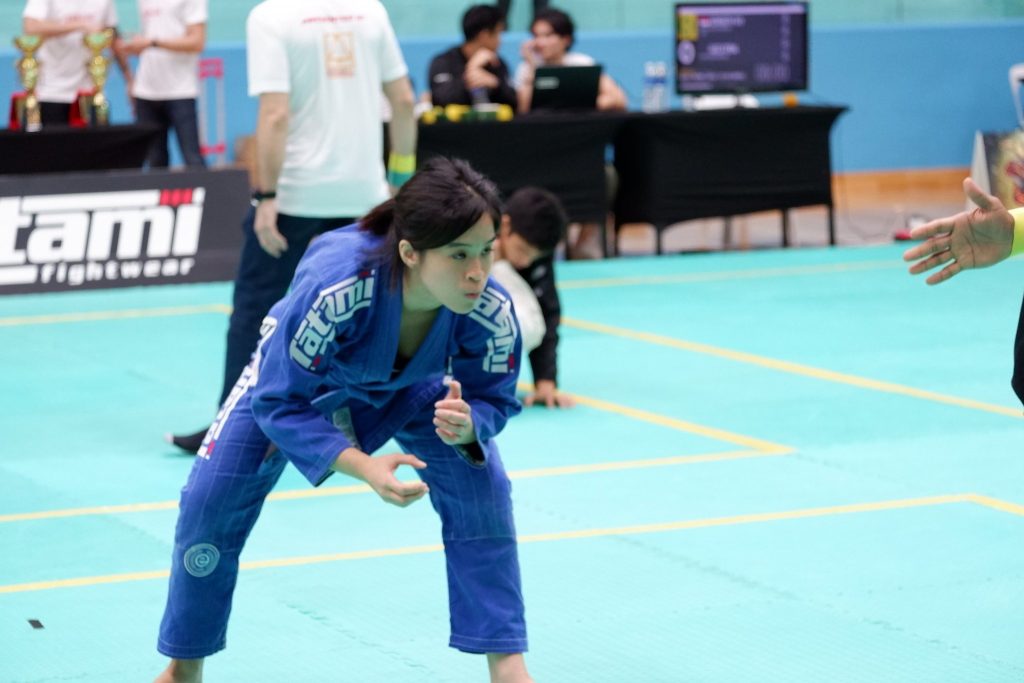
Here, friendship is giving someone your time by showing someone a technique before or after class, in the brief window before we have to slip back into our daily lives. Friendship is asking after their latest addition to a litany of small injuries, offering an ankle guard or finger tape.
For so much of our lives, we operate in a limbo where we may not necessarily see the tangible results of our actions.
In school, we wonder if what we are learning has any meaning beyond an examination. At work, we wonder if our years spent gathering knowledge amounts to anything. At the gym, your knowledge has consequences, if you do not learn your material well, your opponent will see it fit to show this to you.
Here, knowledge is not delivered to you, neatly cut up on a silver platter. Here, knowledge is something you earn, paid for in your own blood, sweat and tears. I am often struck by the contrast I see in my own career as an educator, where I can sometimes feel like a parent, cutting up food on a dinner plate for children.
Ironically, seeing this duality has also taught me to see past the frustration of this, it is how I continue to love what I do, to genuinely love my students, knowing they too are learning to earn their knowledge. I may prepare the lesson plan to try to teach them this, but I do not yet know the lesson that they will learn. There is meaning each time I step into the classroom in the day, in the awareness that I will still try anyway on the days where everything is hard, just as I dig deep into the last reserves of my energy for one last roll.
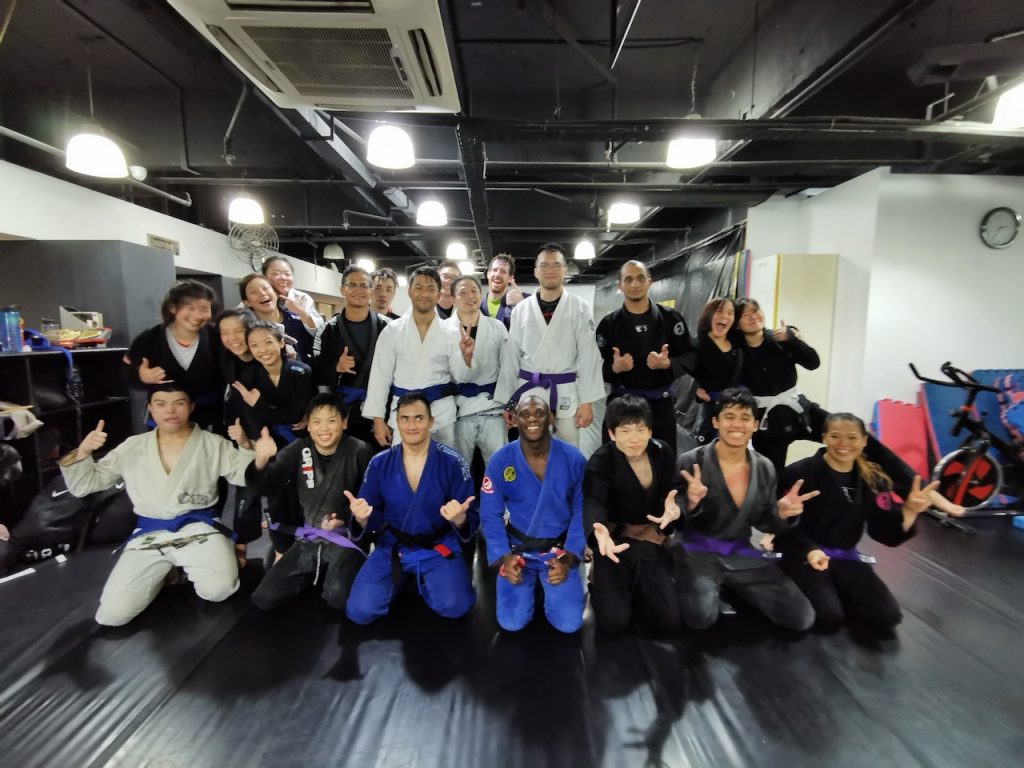
In any art that we make, there is the idea of offering. Food is good often not just because it excites our taste buds, but because of the memories they are entwined in. A dumpling is just a dumpling until it is served on a bed of nostalgia, conjuring up the memory of your grandmother and a kitchen made humid with a pot on the stove and the smell of Shaoxing wine.
Celebrated cellist Yo-Yo Ma speaks of how when he performs, he imagines himself as a dinner host entertaining his guests, but instead of food, he offers sounds. In the same way, the martial arts are an offering if you let it. They are a gateway into the most fundamental aspects of yourself.
The first time you put your hands on another person not in love or anger but to learn the ways you can stop another moving body is to also to learn the ways you can stop your hurtling self. The physicality of training is a blessing for someone who lives in their head more than they should. Martial arts, from what I understand it to be, can be broken down into a series of steps underpinned by the mechanics of the body.
Turn your elbow upwards, and you lose power, keep your elbows down and you draw strength from your entire being. But as a chronic worrier, I think of martial arts as a comforting series of steps underpinned by fundamental rules as to what to do when things go wrong.
Here, friendship is giving someone your time by showing someone a technique before or after class … Friendship is asking after their latest addition to a litany of small injuries, offering an ankle guard or finger tape.
Yes, when you find yourself pinned under a much larger opponent and your own strength fails you, you can move your hip out from beneath your opponent, and escape. Yes, when someone throws a haymaker, you can step to the side and redirect the force of the jab. While this is highly comforting for someone who is an anxious over-thinker, it is not because I think that I can solve my problems with my fists, but that I remember that there are always a series of steps I can take in response to any situation, no matter how bad, and this usually pulls me out of an anxious spiral.
Granted, I now cope with the daily stresses of life by formulating contingency plans from A right up to Z (viii), but I draw that tendency from one of the most helpful lessons that martial arts has ever taught me—if the worst does happen, what are the steps that you will take? And there are always steps.
Training has probably taught me most of the mechanisms I use to navigate my twenties. There’s a trick I like to do when I’m nervous about doing something—stepping into any classroom for the first time as an educator, speaking in front of crowds, an interview. I would repeatedly tell myself that I fight people twice my size and weight for a hobby, I can do anything. But other than that slightly hilarious image, more than anything, martial arts really puts into perspective the things you are capable of doing under pressure. Sometimes you tap out, sometimes you escape.
There are so many more ways I could talk about martial arts but I am limited by the ways I am still discovering myself. For to talk about martial arts, is to also go beyond the big fights, the primal circling of two people in a ring. To talk about martial arts is also to talk about the story of ourselves.

